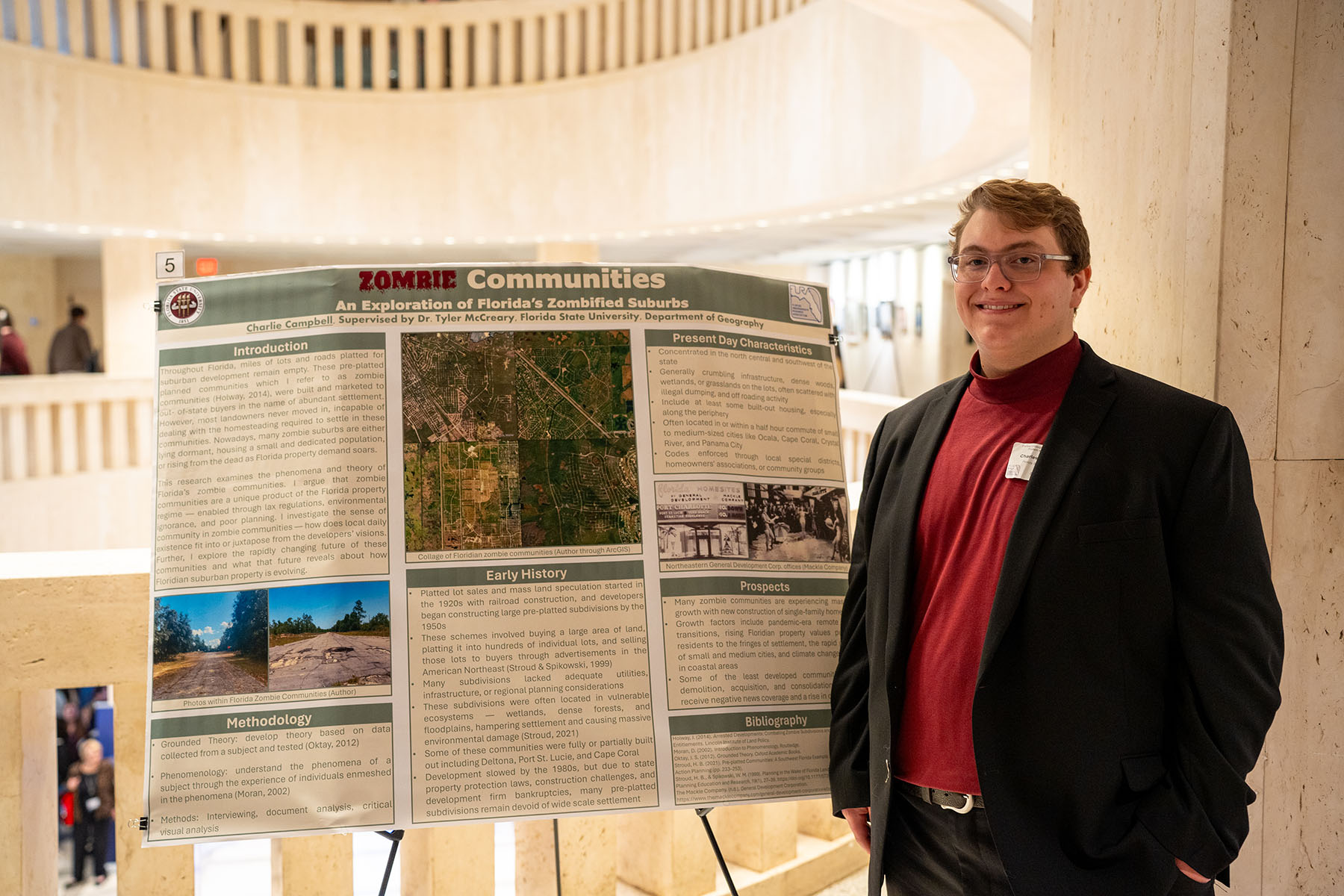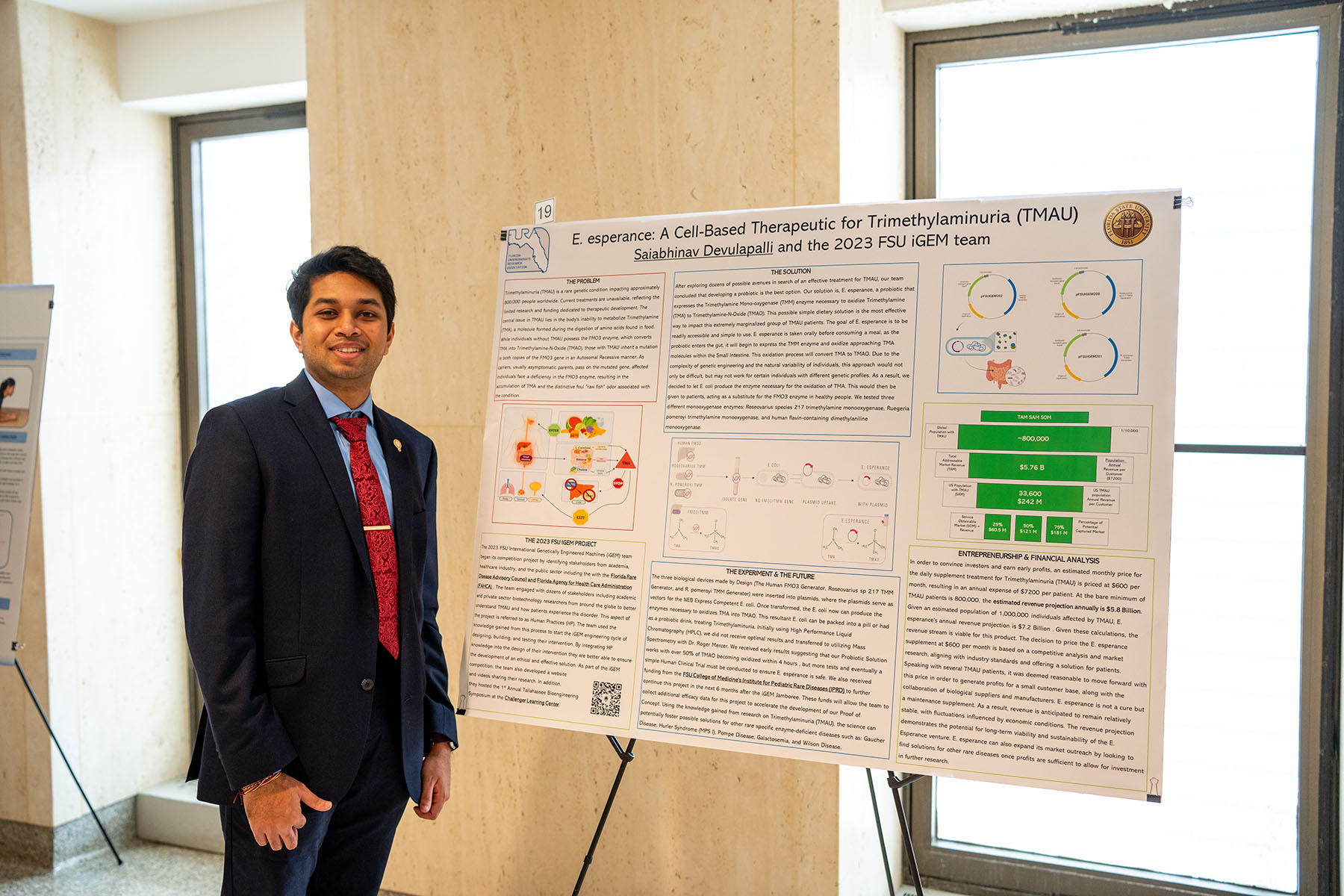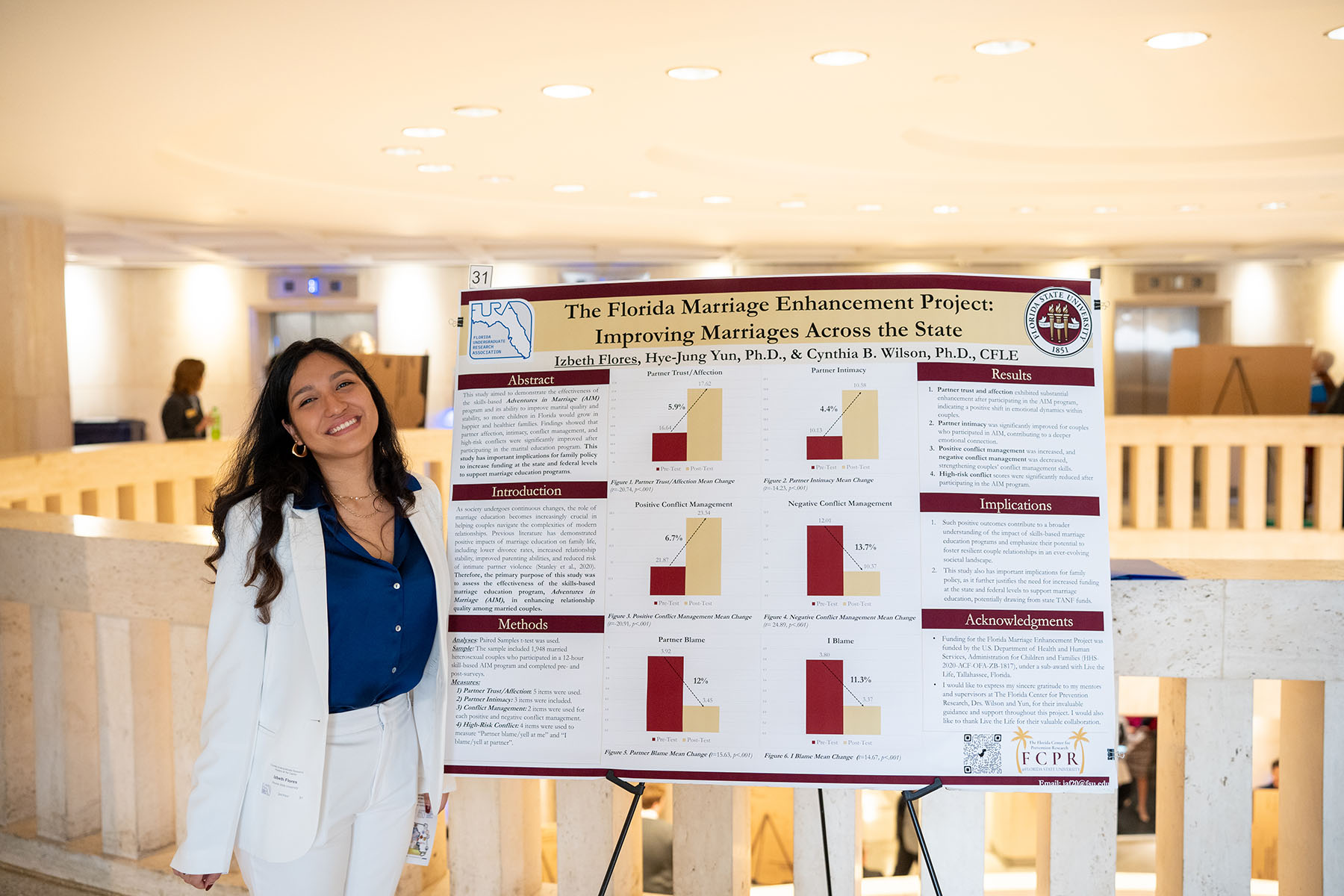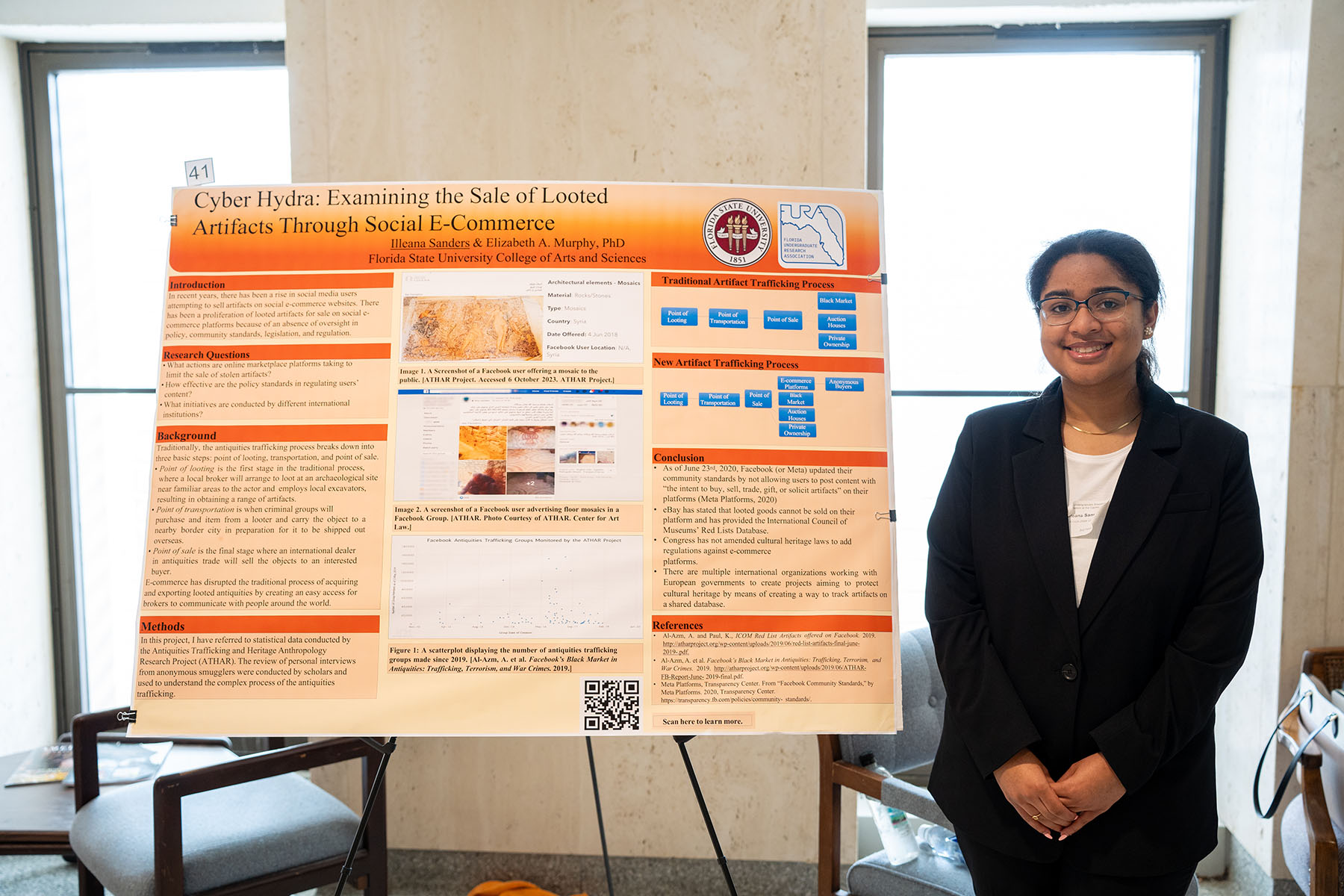Four FSU undergraduate students present research posters at Florida State Capitol

Florida State University undergraduate research students had the chance to share their research posters at the Florida State Capitol on Jan. 23 during the Florida Undergraduate Research Association’s (FURA) Posters at the Capitol 2024 event.
“We loved having the opportunity to show our legislators and others who work at the Capitol that Florida State University undergraduate students are engaged in groundbreaking research and innovation that is making an impact in the state and beyond,” said Latika Young, director of FSU’s Center for Undergraduate Research and Academic Engagement (CRE).
Co-hosted by CRE and FURA, this was the third time for the biannual event. Each FURA institutional member could invite up to four students to present posters, connect with Florida representatives and learn more about the political process and how to advocate for undergraduate research at the local and state governmental level.
This year’s FSU students presented the following posters:
Charlie Campbell – Winter Garden, Fla.
“Zombie Communities: An Exploration of Florida’s Zombified Suburbs.”
Campbell’s Honors in the Major thesis research argues that zombified suburban communities are an understudied and obscure byproduct of overdevelopment and poor planning in Florida. Residents and landowners deal with stagnant property values, safety concerns and the reality that the suburban dream they bought into is unrealized and unlikely to come to fruition. This research intervenes in this knowledge gap — providing community-grounded, geographical theory on zombie communities, their implications on residents and landowners and how their phenomena fit within suburbanization in Florida.

Campbell presented his Honors in the Major thesis research on zombified suburban communities at the Florida State Capitol. (Brittany Mobley, Undergraduate Studies)
Saiabhinav Devulapalli – Tallahassee, Fla.
“E. esperance: A Cell-Based Therapeutic for Trimethylaminuria (TMAU).”
Devulapalli’s project, conducted with the FSU iGEM team, explored the use of E. esperance as a probiotic supplement aimed at addressing the unmet needs of individuals suffering from trimethylaminuria (TMAU), commonly known as “fish odor syndrome.” With no existing treatments available, E. esperance leverages cutting-edge synthetic biology techniques to develop a cell-based therapeutic for a global TMAU patient population through collaboration with the FSU College of Medicine’s Institute for Pediatric Rare Diseases and strategic partnerships with key suppliers and manufacturers.

Devulapalli presented his research conducted with the FSU iGEM team at the Florida State Capitol. (Brittany Mobley, Undergraduate Studies
Izbeth Flores – Panama City, Panama
“The Florida Marriage Enhancement Project: Improving Marriages Across the State.”
Flores’ study assesses the effectiveness of a skills-based marriage education program, Adventures in Marriage, in enhancing relationship quality among married couples. Using independent samples tests, findings demonstrate noteworthy improvements in couples’ conflict management skills, fostering a healthier approach to addressing disagreements.

Flores presented her research at the Florida State Capitol on Jan. 23, 2024. (Brittany Mobley, Undergraduate Studies)
Illeana Sanders – Jacksonville, Fla.
“Cyber Hydra: Examining the Sale of Looted Artifacts Through Social E-commerce.”
Sanders’ study, as part of an Honors in the Major thesis project, analyzes the laws centered around looted artifacts. It includes an in-depth critique on the existing community standards created by social media companies around the selling of artifacts. Her poster argues that domestic and international legislation is not effective against enforcing ramifications on those who are involved in the antiquities trafficking process.

Sanders presented her Honors in the Major thesis research at the Florida State Capitol. (Brittany Mobley, Undergraduate Studies)
